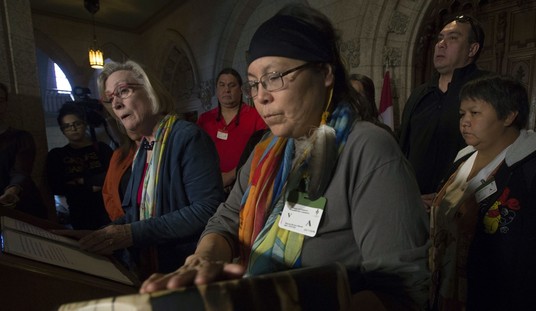Even the left is wondering about the president’s Libyan response. From Leon Wieseltier writing at TNR:
“This violence must stop.” So President Obama declared the other day about the depravity in Tripoli. This “must” is a strange mixture of stridency and passivity. It is the deontic locution familiar from the editorial pages of newspapers, where people who have no power to change the course of events demand that events change their course. This “must” denotes an order, or a permission, or an obligation, or a wish, or a will. It does not denote a plan. It includes no implication, no expectation, of action. It is the rhetoric of futility: this infection must stop, this blizzard must stop, this madness must stop. But this infection, this blizzard, this madness, like this violence, will not stop, because its logic is to grow. It will stop only if it is stopped. Must the murder of his own people by this madman stop, Mr. President? Then stop it.
Nothing is ever as easy as it looks, and one can appreciate — if not agree — with the president’s dilemma. He was late to the condemnation chorus, largely (we are told) out of fear of what the Libyan madman might do to American citizens. The hostage crisis that paralyzed Jimmy Carter and the United States for more than a year is never far from any president’s mind in situations where there is a breakdown in civilization. The argument has been advanced that the president acted prudently by waiting until almost all Americans were clear of Libyan territory before issuing a strong statement condemning the bloodletting. This is correct — as far as it goes. Other western countries had citizens at risk but that didn’t prevent their governments from laying into the Libyan dictator for his shocking behavior.
Wieseltier wonders why the president is reluctant to use our power in this situation as well as other crisis of his presidency:
Why is Obama so disinclined to use the power at his disposal? His diffidence about humanitarian emergencies is one of the most mystifying features of his presidency, and one of its salient characteristics. These crises—in Tehran two years ago, in Cairo last month, in Tripoli now—produce in him a lame sort of lawyerliness. He lists the relevant rights and principles and then turns to procedural questions, like those consultations. The official alibi for Obama’s patience with Qaddafi’s atrocity is his concern for the Americans who are still stranded within Qaddafi’s reach; I was amused to learn from a friend that the spin out of the White House includes the suggestion that Obama’s restraint is actually the wisdom of the hostage negotiator. But Obama’s statement about Libya suggests another explanation for his slow pace. This was its climax: “So let me be clear. The change that is taking place across the region is being driven by the people of the region. This change doesn’t represent the work of the United States or any foreign power. It represents the aspirations of people who are seeking a better life.”
They are fighting authoritarianism, but he is fighting imperialism. Who in their right mind believes that this change does represent the work of the United States or any foreign power? To be sure, there are conspiracy theorists in the region who are not in their right mind, and will hold such an anti-American view; but this anti-Americanism is not an empirical matter. They will hate us whatever we do.
Lara Logan probably agrees.
There are two possible explanations for the president’s hesitancy; the first is that he does not believe that the application of American power is a positive good in most cases and refrains from intervening because it is against his principles. The second is that he can’t make up his mind.
A good case can be made for both reasons.










Join the conversation as a VIP Member